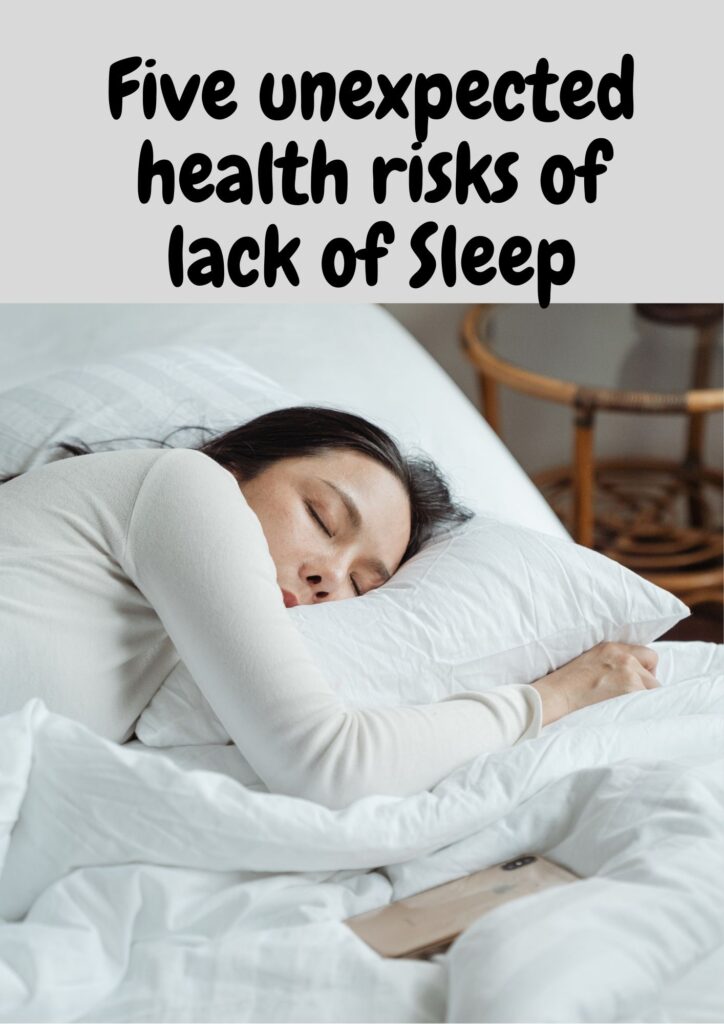There is a difference between a good night’s sleep and one that is fitful or too short. Persistent sleep loss can lead to health problems far more serious than one can imagine. There can be several reasons contributing to your poor quality of sleep and might not always be stress and anxiety.

Sleep and your health- The direct relationship
There is a direct link between your slumber and your ability to perform throughout the day. It can lead to intimate fatigue, bad mood, or lack of focus, etc. What many of us don’t understand is that an absence of sleep—especially on an everyday basis—is related to long health consequences, as well as chronic medical conditions like polygenic disorder, high vital sign, and cardiopathy, which these conditions might result in a shortened lifetime.
Sleep length and chronic sickness:
Studies have disclosed a range of unquestionably harmful effects of sleep deprivation sometimes related to excessive stress, like an exaggerated vital sign, impaired blood sugar management, and exaggerated inflammation.
Each reduced and exaggerated nap length are coupled with high blood pressure, diabetes, and fatness. However, cross-sectional studies cannot make a case for however insufficient. An excessive amount of sleep ends up in sickness because people might have a condition that affects it instead of a habit that causes infection to occur.
Long snooze habits are related to the event of diverse sickness comes from pursuit the sleep habits and disease patterns over long periods of your time in people who are at first healthy (i.e., longitudinal epidemiologic studies). We tend to don’t nevertheless apprehend whether adjusting one’s sleep will cut back the danger of eventually developing a sickness or reducing the severity of associate degree current sickness. However, the results from longitudinal epidemiologic studies are currently starting to counsel that this is often seemingly.
Obesity:
Lack of good rest at night is also seen as a possible risk issue for fatness at the side of the two most typically known risk factors: lack of exercise and gluttony. Analysis into the mechanisms concerned with regulating metabolism is starting to make a case for what the affiliation between sleep and fatness may well be. Our bodies secrete hormones that facilitate regulating appetence, energy metabolism, and the aldohexose process while resting. Getting insufficient sleep upsets the balance of different hormones. For instance, poor sleep ends up in a rise within the production of Hydrocortone, typically observed because of the “stress secretion.” Poor sleep is additionally related to will increase in the secretion of hormones following a meal. The hormone may be a secretion that regulates the aldohexose process and promotes fat storage; higher hormone levels are related to weight gain, a risk issue for the polygenic disorder.
Insufficient sleep also is related to lower levels of leptin, a secretion that alerts the brain that it’s enough food. As a result, poor sleep might lead to food cravings even when we’ve consumed the required amount of calories. We may also be a lot of seemingly to eat foods like sweets that satisfy the searching for a fast energy boost.
Diabetes:
Researchers have found that poor sleep might result in sort two polygenic disorder by influencing how the body processes aldohexose, the high-energy supermolecule that cells use for fuel. One short sleep restriction study found that a group of healthy people who had their sleep decreased from eight to four hours per night processed aldohexose a lot slower than they did once they were allowable to sleep twelve hours. Various epidemiologic studies have disclosed that adults who sometimes slept but 5 hours per night have a vastly exaggerated risk of getting or developing the polygenic disorder.
Heart Disease and cardiovascular disease:
Studies have found that one night of inadequate sleep in people with existing cardiovascular disease will cause elevated pressure throughout the subsequent day. This result could begin to explain the correlation between poor sleep and heart disorder and stroke. For instance, one study found that sleeping deficient (less than six hours) or an excessive amount of (more than 9 hours) exaggerated the chance of having a coronary heart condition. There is additionally growing proof of an association between sleep disorder and heart conditions. People who have symptoms generally expertise multiple awakenings every night due to the closing of their airways after they doze off. Over time, this may result in the chronic elevation of cardiovascular disease pressure, which could be a significant risk issue for the disorder.
Immunity:
It is natural for individuals to go to bed once they are sick. One theory proposes that the system evolved “sleepiness causing factors” due to inactivity of sleep provided an advantage: those who slept a lot once visaged with an infection were higher ready to fight that infection than those that slept less. Analysis in animals suggests that those animals which get a lot of deep sleep following an experimental challenge by the microbic disease have a higher likelihood of survival.
Mood Disorders:
Given that one sleepless night will cause individuals to be irritable and moody the subsequent day, it’s conceivable that chronic disorder could result in semipermanent mood disorders. It can lead to depression, anxiety, and mental disorder. In one study, subjects who slept four and a half hours per night reportable feeling stressed, sad, angry, and mentally exhausted. All of those self-reported symptoms improved dramatically once matters came to a traditional sleep schedule.


Thanks for another informative website. Where else could I get that type of information written in such an ideal way? I’ve a project that I am just now working on, and I have been on the look out for such info.
My brother recommended I would possibly like this blog. He used to be totally right. This publish truly made my day. You cann’t believe simply how a lot time I had spent for this information! Thank you!
Oh boy!I am battling insomnia